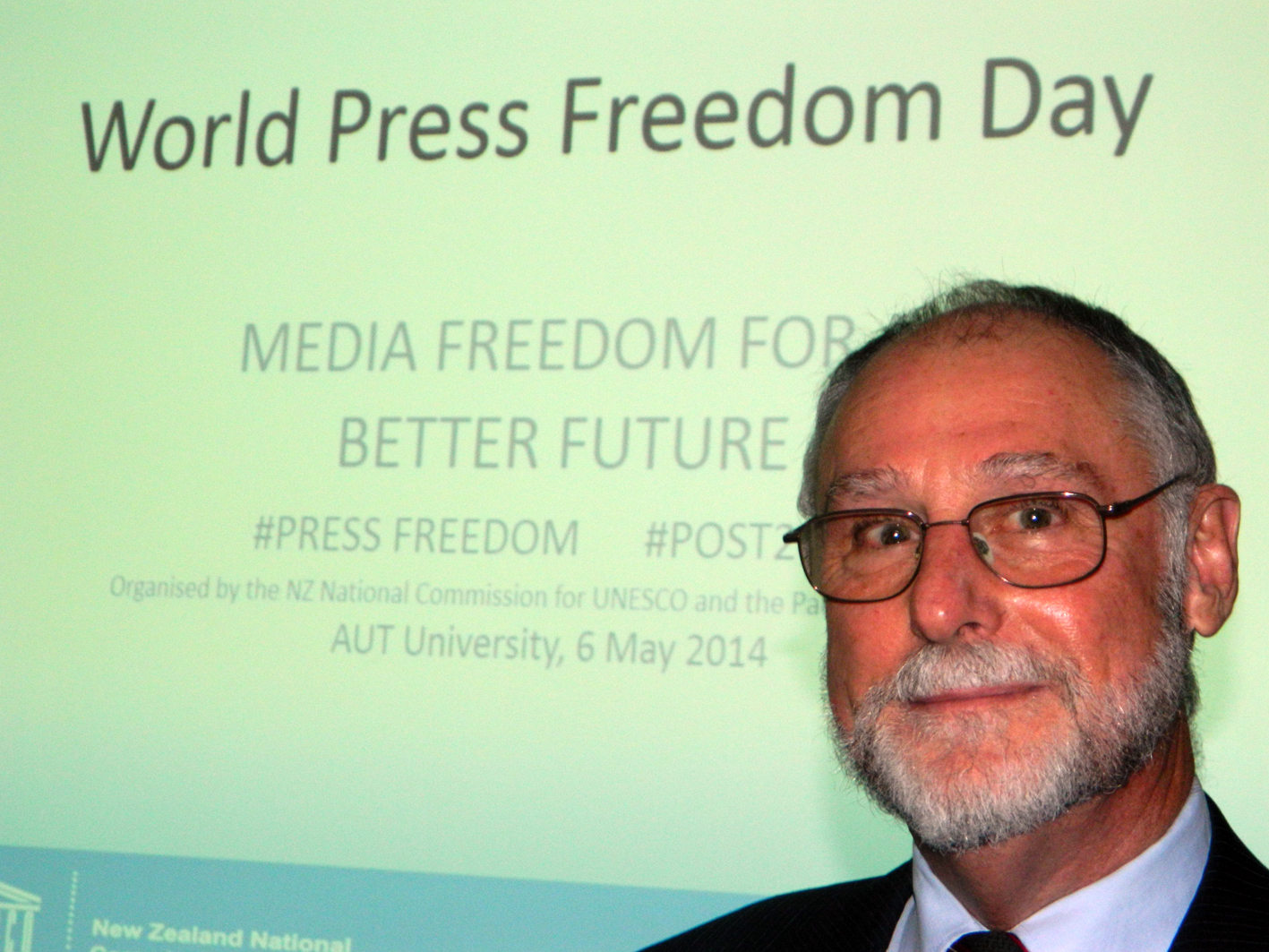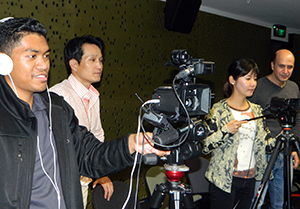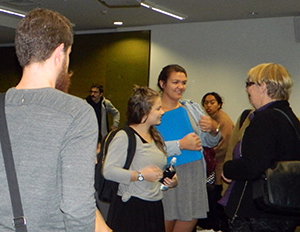
AUCKLAND (Pacific Media Watch): A media commentator and author has warned that press freedom in New Zealand is under threat from the mainstream media's drive for profit which is threatening the "substance of journalism".
While none of the journalists killed internationally in 2014 died in New Zealand, and while no journalist had been imprisoned in New Zealand for doing their job this year, New Zealand had in fact reverted from having a "developed", to a "developing" political economy of communication.
This regression had happened because the mainstream media was increasingly incapable of serving society, as it was obliged to do, said Dr Gavin Ellis, author of a forthcoming global media book and former editor-in-chief of The New Zealand Herald.
Dr Ellis told the second annual UNESCO Press Freedom lecture at AUT University last night that while New Zealand had state-owned radio and television, the major television network had been "freed of its public service broadcasting obligations in order to pursue commercial goals".
High quality tertiary journalism training schools existed although New Zealand newsrooms had been systematically depleted.
"We have sophisticated telecommunications services, even though only 1 percent of us have optical broadband. The qualifications will not be lost on you" Dr Ellis said.
 In New Zealand, Dr Ellis said it was "an over-riding economic goal – and not the repressive actions of power-craving politicians – that threatens the substance of our journalism. That economic goal is not the sustenance of our journalism but the satisfying of investors," Dr Ellis added.
In New Zealand, Dr Ellis said it was "an over-riding economic goal – and not the repressive actions of power-craving politicians – that threatens the substance of our journalism. That economic goal is not the sustenance of our journalism but the satisfying of investors," Dr Ellis added.
Workforce slashed
He pointed out that APN had slashed its New Zealand workforce in half over the past seven years. Fairfax NZ had cut 150 jobs in 2012, 36 of them journalist positions. TVNZ lost 90 jobs in 2009 and a further 75 in 2012.
The closure of the New Zealand Press Association in 2011 had reduced the overall amount of news being covered.
Newsrooms were now under commercial pressure to make money from supplying readers with "infotainment", with a study by Dr Ellis earlier this year revealing that "if it bleeds, it leads”.
The percentage of crime and emergency stories was high in The New Zealand Herald, Waikato Times and Dominion-Post even though these were not the most important newsworthy issues in New Zealand at the time, said Dr Ellis.
"Such news judgment is indicative of a shift away from providing information that people need to know, toward a marketer’s perception of information that people want to know. If they desire celebrity news, they shall have celebrity news.
 "There is an added bonus: breathless prose on Gwyneth Paltrow’s marital status or Miley Cyrus’ bizarre interpretation of womanhood is easier and cheaper to publish than well-researched accessible articles on complex subjects or contextualized accounts from the world’s strategic danger zones...no-one died covering celebrity news".
"There is an added bonus: breathless prose on Gwyneth Paltrow’s marital status or Miley Cyrus’ bizarre interpretation of womanhood is easier and cheaper to publish than well-researched accessible articles on complex subjects or contextualized accounts from the world’s strategic danger zones...no-one died covering celebrity news".
As a result, news corporations no longer saw it as important to inform readers about the "normal functionings of the institutions that collectively hold our community together", instead choosing to focus on infotainment and isolated occurrences of corruption.
This "burglar alarm" approach to news, where only acute problems make it into the mainstream media, meant that readers were no longer getting "comprehensive coverage" from the media, Dr Ellis concluded.
The UNESCO lecture was organised in collaboration with the Pacific Media Centre.
This work is licensed under a Creative Commons Attribution-NonCommercial 3.0 New Zealand Licence.




